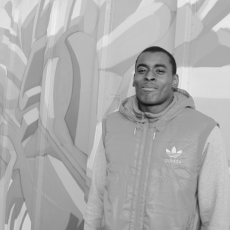Policing by consent? Not if you are young, male and black
Hannah Millar, who works with Y-Stop partner Youth Futures, reflects on the group’s involvement in the project.
What does stop and search mean to me? It is not something I have experienced and if you must put me in a box then I am female, white and middle class. Stop and search has not been a part of my life or the lives of anyone I knew when growing up in rural Scotland. But it is an issue for thousands of young people, particularly young black males, who are subject to this policing tactic on a regular basis.
I moved to London in the immediate aftermath of the 2011 ‘riots’ and I became very conscious of the police practice of stop and search which, even to an ‘outsider’ like myself, seemed to be a highly discriminatory method targeting young black men. What purpose did it serve? And how did it make the young men feel as they were pulled aside, assumed to be a suspect?
My awareness of the effects of stop and search deepened when two and half years ago I began volunteering with Youth Futures, a youth project based in Camberwell, South East London. The project now has regular attendances of over 100 young people aged 5-21 and many of them endure this humiliating process as part of their daily lives. The borough of Southwark, where most of the young people live, has one of highest rates of stop and search in London. Some of the young people who attend the project adamantly assert that they have never been stopped and that ‘it won’t ever happen to me’ while their friends’ turn round and openly say ‘of course we get stopped, it’s cause we are black’. What is unsettling is how there is almost a tacit acceptance amongst many of the young people that this will happen to them, while others will outright deny this reality, possibly ashamed of having been stopped.
Youth Futures has been fortunate to work with StopWatch, Release and Fully Focused in developing the Y-Stop project. One of the positive things to emerge from being a member of the Y-Stop coalition is how it is empowering young people to transform an unquestionably degrading and challenging experience into a situation where they are equipped with the knowledge and skills to enforce best practice by the Met Police. One of the Youth Futures young leaders has trained as a peer trainer and has been delivering workshops across England, using his experiences and new knowledge to inform other young people. In my work with Youth Futures, I do not want to just be an advocate for the young people by speaking out on their behalf against the injustice of stop and search, but rather want to be part of creating a space that facilitates young people to have the confidence to share their experiences and to campaign for change themselves, so that they and future generations do not have to feel targeted because of their race, their postcode or how they are dressed.
I personally observe the police as they carry out stop and searches and, I struggle, despite the Home Secretary’s proposals, to see any improvement in the attitudes and procedures of the officers stopping and searching the same demographic of young person, again and again. It is unacceptable that generations are growing up under constant suspicion by the very institution that is meant to be in place for ‘our’ protection, yet have no legacy of serving the poor or ethnic minorities.
Many of the young men I engage with through Youth Futures express how they ‘do not feel part of society’ and as I look at stop and search situated within a broader context, this practice feeds into the racial discrimination that is deeply engrained in institutions throughout society, thanks, in part, to Britain’s colonial legacies. Equipping young people to cope with stop and search plays just a small part in challenging the systems and structures that are damaging to individuals but also families and whole communities. Y-Stop will ensure that this issue remains on the political agenda in the run up to the General Election, which is vital, particularly in light of further cuts and policy changes that will impact young people, such as those I work with. This Government seems to be on a pathway seeking to ignore and disregard a whole generation, and Youth Futures and other like-minded organisations need to hold on to continue to support this generation to have their voices represented, through innovative projects like Y-Stop.
Hannah Millar is a SOS Project Caseworker and works with Youth Futures.



